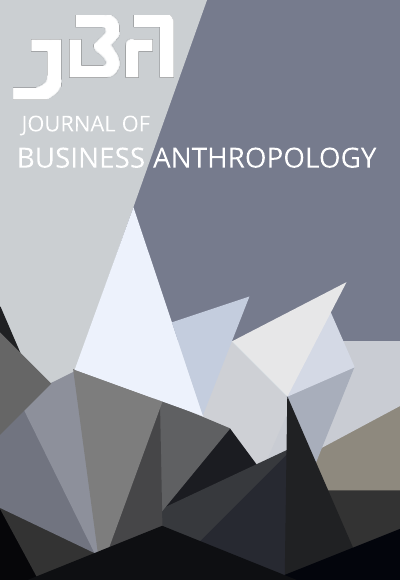“The Closed-World Principle”: Corporations and the Metaculture of Newness via Oldness
DOI:
https://doi.org/10.22439/jba.v9i1.5961Abstract
Although many corporations make claims about the newness of their products in order to make the public interested in purchasing them, not all of them make the same kind of claims. Whereas previous studies have highlighted claims to newness that are based on emphasizing the newness of almost all the parts of new products in relation to the parts of those products’ previous versions, I highlight claims to newness that are based on emphasizing the oldness of the parts of new products in relation to the parts of those products’ previous versions. These two distinct kinds of claims are patterned after two diametrically opposed normative ideals of newness that have a specific intellectual history in the modern west. This history and its contemporary instantiations have implications for the study of the motion of culture in general, and of the mechanisms that propel it in the corporate world in particular.
References
Abrams, Meyer H. 1971. The Mirror and the Lamp: Romantic Theory and the Critical Tradition. Oxford: Oxford University Press.
Goldsmith, Kenneth. 2005. Weather. Los Angeles: Make Now.
Goldsmith, Kenneth. 2007. Traffic. Los Angeles: Make Now.
Goldsmith, Kenneth. 2008. Sports. Los Angeles: Make Now.
Howard, Ron, dir. 1995. Apollo 13. 140 min. Los Angeles: Universal Pictures.
Ingold, Tim, and Hallam, Elizabeth. 2007. “Introduction,” in Creativity and Cultural Improvisation, eds. Hallam, Elizabeth and Tim Ingold. London: Bloomsbury, 1-24.
Keane, Webb. 2002. “Sincerity, ‘Modernity’, and the Protestants,” Cultural Anthropology 17(1): 65-92. https://doi.org/10.1525/can.2002.17.1.65
Kwoh, Leslie. 2012. “You call that innovation?” The Wall Street Journal, May 23.
Latour, Bruno. 1996. Aramis, or the Love of Technology. Cambridge: Harvard University Press.
Lévi-Strauss, Claude. 1966. The Savage Mind. Chicago: University of Chicago Press.
Lévi-Strauss, Claude. 1991 [1964]. Totemism. London: Merlin Press.
Moeran, Brian, and Bo T. Christensen, eds. 2013. Exploring Creativity: Evaluative Practices in Innovation, Design, and the Arts. Cambridge: Cambridge University Press. https://doi.org/10.1017/CBO9781139519724
Perloff, Marjorie. 2010. Uncreative Genius: Poetry by Other Means in the New Century. Chicago: University of Chicago Press.
Redfield, Peter. 2000. Space in the Tropics: From Convicts to Rockets in French Guiana. Berkeley: University of California Press. https://doi.org/10.1525/california/9780520219847.001.0001
Rusbridger, Alan. 1999. “Autopilot Jeep Grand Cherokee,” The Guardian, May 10.
Sillery, Bob. 1998. “Grand Cherokee Keeps Its Bloodlines,” Popular Science, December, p. 32.
Storck, Bob. 1998. “1998 1999 Jeep Grand Cherokee: The Icon of the Industry Gets Its First Rework, and No Old Components Survive,” Woman Motorist, Fall.
Taylor, Charles. 1989. Sources of the Self: The Making of the Modern Identity. Cambridge, MA: Harvard University Press.
Urban, Greg, Ernest Baskin, and Kyung-Nun Koh. 2007. “‘No Carry-Over Parts’: Corporations and the Metaculture of Newness,” Suomen Antropologi 32(1): 5-19.
Urban, Greg. 2001. Metaculture: How Culture Moves through the World. Minneapolis: University of Minnesota Press.
Wilf, Eitan. 2012. “Rituals of Creativity: Tradition, Modernity, and the ‘Acoustic Unconscious’ in a U.S. Collegiate Jazz Music Program,” American Anthropologist 114 (1): 32–44. https://doi.org/10.1111/j.1548-1433.2011.01395.x
Wilf, Eitan. 2014. “Semiotic Dimensions of Creativity,” Annual Review of Anthropology 43: 397–412. https://doi.org/10.1146/annurev-anthro-102313-030020
Wilf, Eitan. 2015a. “Ritual Semiosis in the Business Corporation: Recruitment to Routinized Innovation,” Signs and Society 3(S1): S13–S40. https://doi.org/10.1086/679321
Wilf, Eitan. 2015b. “Routinized Business Innovation: An Undertheorized Engine of Cultural Evolution,” American Anthropologist 117(4): 679-692. https://doi.org/10.1111/aman.12336
Wilf, Eitan. 2019. Creativity on Demand: The Dilemmas of Innovation in an Accelerated Age. Chicago: University of Chicago Press. https://doi.org/10.7208/chicago/9780226607023.001.0001
Young, Edward. 1759. Conjectures on Original Composition. London: Miller.
Downloads
Published
Issue
Section
License
Authors who publish with this journal agree to the following terms:
- Authors retain copyright and grant the journal right of first publication with the work simultaneously licensed under a Creative Commons Attribution License that allows others to share the work with an acknowledgement of the work's authorship and initial publication in this journal.
- Authors are able to enter into separate, additional contractual arrangements for the non-exclusive distribution of the journal's published version of the work (e.g., post it to an institutional repository or publish it in a book), with an acknowledgement of its initial publication in this journal.
- Authors are permitted and encouraged to post their work online (e.g., in institutional repositories or on their website) prior to and during the submission process, as it can lead to productive exchanges, as well as earlier and greater citation of published work (See The Effect of Open Access).



